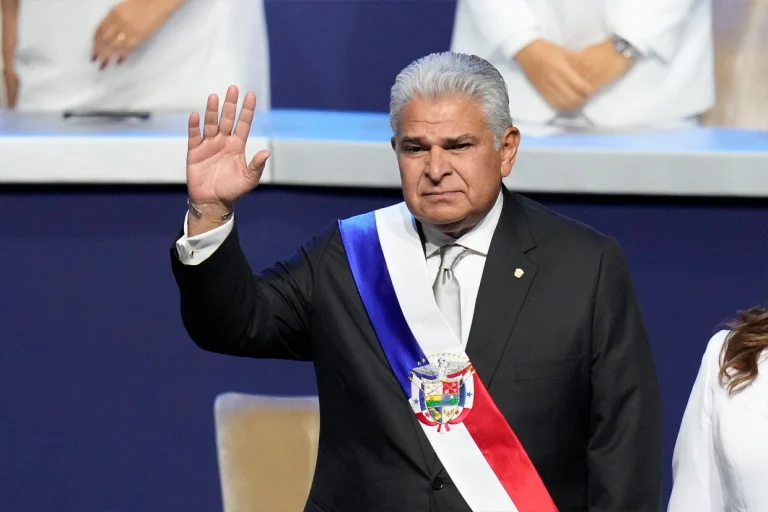José Raúl Mulino took office on Monday as Panama’s new president, assuming leadership amidst pressing challenges, chief among them the need to stem irregular migration through the perilous Darien Gap, a rugged jungle corridor linking Panama and Colombia.
A seasoned 65-year-old, Mulino, formerly Panama’s security minister, has pledged to halt the flow of migrants through this lawless border region. Last year, over half a million individuals traversed this route, and in 2024 alone, more than 190,000 have already made the journey, primarily from Venezuela, Ecuador, Colombia, and China.
“I will not permit Panama to serve as an open thoroughfare for thousands entering our country illegally, aided by international organizations involved in drug and human trafficking,” Mulino declared following his inauguration. “While acknowledging the root causes of migration, each nation must address its own challenges.”
Shortly after assuming office, Mulino’s administration announced that U.S. Homeland Security Secretary Alejandro Mayorkas had signed a memorandum of understanding with Panama’s Foreign Affairs Minister Javier Martínez-Acha. This agreement commits the U.S. to funding the repatriation costs of migrants entering Panama illegally through the Darien Gap.
Last week during a visit to the Darien, Mulino proposed negotiating an agreement with the United States for the deportation of migrants who cross into Panama. Mayorkas was present at his inauguration, signaling U.S. support, primarily in covering deportation flight expenses. Panama’s Foreign Affairs Minister-designate, Javier Martínez-Acha, confirmed that the U.S. would assist with these costs, although specific figures have yet to be finalized.
“Ending irregular immigration through the Darien Gap is Mulino’s top priority,” noted Michael Shifter, adjunct professor at Georgetown University. “The president is deeply committed to this objective, although implementing this policy will face significant opposition from various groups and interests.”
Under the previous administration, Panama facilitated migrant transit, allowing them to register with authorities upon emerging from the jungle and assisting them to reach the Costa Rican border swiftly and orderly.
The inauguration was attended by the presidents of Costa Rica and Colombia, underscoring regional cooperation on migration issues. Strengthening enforcement in Panama could potentially reduce migrant arrivals at the U.S. border, albeit temporarily until alternate routes are established. However, it may also drive migrants towards riskier paths and boost smuggling activities.
Mulino secured victory in May’s election amidst a crowded field, capturing over 30% of the vote. He replaced former President Ricardo Martinelli, barred from running due to a 10-year prison sentence for money laundering.
Beyond migration, Mulino confronts managing the Panama Canal, a critical global trade route strained by ongoing droughts this year. Additionally, he faces the challenge of addressing fiscal gaps left by the cancellation of a major mining concession following widespread protests.
Critiquing outgoing President Laurentino Cortizo’s economic legacy, Mulino highlighted a sluggish economy and soaring public debt. “My administration will prioritize addressing the needs of the majority of Panamanians,” he asserted. “This involves not eradicating wealth but combating poverty.”
Mulino has pledged to launch initiatives aimed at youth employment and embark on infrastructure projects to enhance the nation’s roads and highways, setting an ambitious agenda for his tenure as Panama’s president.

